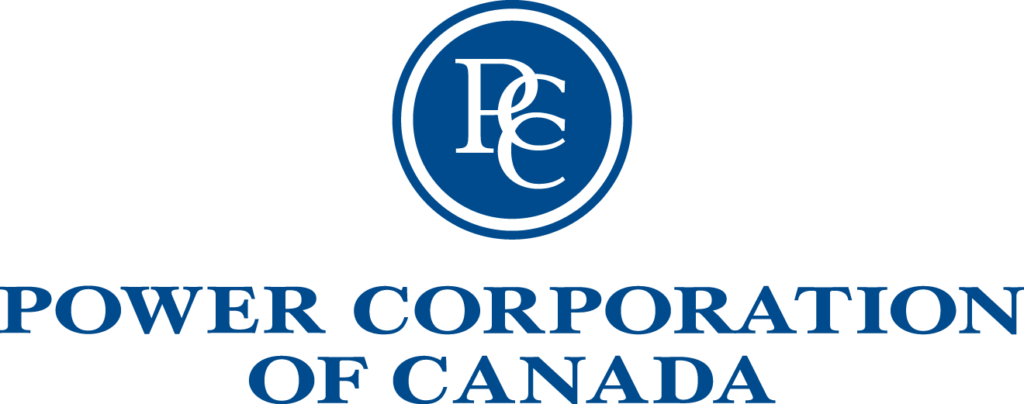On October 2, the Samara Centre for Democracy hosted a conversation at the Institute for Research on Public Policy about civic engagement in Canada.
This in-person event featured panelists Malorie Flon (Institute du Nouveau Monde), Bianca Wylie (Digital Public) and Sarah Yaffe (MASS LBP) discussing the best practices for increasing public participation in politics. They explored various innovations, both online and in-person, that enhance local democracy and bridge the gap between citizens and ‘political elites’. The conversation was moderated by the Samara Centre for Democracy’s CEO Sabreena Delhon.
On Monday, September 16, 2024, we held a webinar about the geopolitics of trade in an era of security.
The geopolitical winds are shifting the patterns of international trade. Increasingly strained relations between China and the West and Russian aggression culminating in the invasion of Ukraine intermingled with the supply chain disruptions of the pandemic have shaken up two decades of tighter diplomatic and economic ties.
Western countries are re-arranging their priorities as the tension grows between trade liberalization and other concerns like security, climate change and human rights, along with domestic politics.
This webinar expanded upon the ideas raised in the corresponding Policy Options editorial series about how major international players including Canada are navigating this rapidly evolving geopolitical environment.
Our panellists were Jörg Broschek, Professor of Political Science and Laurier Research Chair at Wilfrid Laurier University; Laura Dawson, Executive Director of Future Borders Coalition; Patricia Goff; Professor of Political Science at Wilfrid Laurier University; and Patrick Leblond, CN-Paul M. Tellier Chair on Business and Public Policy and Associate Professor in the Graduate School of Public and International Affairs at the University of Ottawa. Policy Options editor-in-chief Les Perreaux moderated the conversation, which was followed by a Q&A period with our virtual audience.
Video
On Tuesday, September 24 in Ottawa and online via Zoom we held an event about digital connectivity across Canada.
With broadband coverage on target to connect 100 per cent of Canadians to high-speed internet by 2030, some may believe that Canada is close to claiming success in bridging the digital divide — but gaps remain.
Indigenous and northern communities are still behind the rest of Canada in terms of the availability of internet at speeds needed to take full advantage of essential services such as health care, education and remote work. Low-income Canadians also struggle to afford the technology and internet plans needed to participate in the digital economy, including government services and information, banking, health care, education and employment. To overcome these gaps, governments should pursue new approaches that address the needs of underserved communities and improve the affordability of the internet.
Our panellists were Ian Scott, former chairperson of the Canadian Radio-Television and Telecommunications Commission (CRTC); Elisha Ram, Associate Assistant Deputy Minister, Skills and Employment Branch, Employment and Social Development Canada; and Bill Murdoch, executive director of Clear Sky Connections. IRPP president and CEO Jennifer Ditchburn moderated the conversation, which was followed by a Q&A period with our in-person and virtual audiences.
The conversation touched on Ian Scott’s IRPP research paper, Conquering the Next Frontier in Bridging the Digital Divide. The event is the third in a three-part IRPP lecture and research publication series, Imagining a Better Digital Future for Canada, sponsored by TELUS.
Video
Those surreal weeks of March 2020. The coronavirus was cutting a path of devastation around the globe and across our communities. Canada’s political leaders announced wide-scale shutdowns that affected all facets of our daily lives. We couldn’t fathom then the long-term impact the pandemic would have on our families, our businesses, on public finances and on the health care system.
Four years later, it’s worth asking: Have Canadian institutions learned anything from that traumatic roller-coaster of a crisis? Will they be ready for the next one?
The short answer is an unsatisfactory “sort of.” Our governments have only a fragmented picture of what happened during the pandemic. Provinces, territories, federal departments and officials have taken their own limited snapshots of the pandemic, but that’s not enough.
Resilient Institutions: Learning from Canada’s COVID-19 Pandemic, a new report from the Institute for Research on Public Policy’s Centre of Excellence on the Canadian Federation and the Institute on Governance, is the first publication to look at how COVID-19 impacted public institutions across the country, with a focus on public health, the public service, federalism and democracy.
On Wednesday, April 3 in Toronto we had a conversation about how to make Canada’s institutions more resilient so that they’re better able to respond to future crises. Panellists David Lametti (Counsel at Fasken Martineau DuMoulin and former Minister of Justice and Attorney General), Fahad Razak (Canada Research Chair in Healthcare Data and Analytics), and Lori Turnbull (professor of political science in the Faculty of Management at Dalhousie University) discussed the findings of the report, and what the government can do better the next time it is confronted by a crisis.
The discussion was moderated by Charles Breton, executive director of the Centre of Excellence on the Canadian Federation. It was a hybrid event that took place in person at the Toronto Reference Library and online via Zoom.
Video
Social inequalities have shown no sign of receding in Canada or worldwide. The COVID-19 pandemic demonstrated the persistence of deep-seated inequalities along racialized and gendered lines. Meanwhile, the resurgence of the Black Lives Matter movement for racial justice has called into question the weight that power and privilege continue to hold in our society.
Although policymakers continue to attempt to address the many dimensions of inequality, economic, racial and gendered disparities remain. Worse yet, public policy decisions have, in many cases, been complicit in the perpetuation of social inequalities.
This in-person conversation between Debra Thompson, associate professor of political science at McGill University and the host of the IRPP’s In/Equality podcast, and Joe Soss, the Cowles Chair for the Study of Public Service at the University of Minnesota, addressed these concerns head-on, considering the intersection of public policy and social inequality.
Nous avons eu le plaisir de tenir un 5 à 7 en format causerie dans les bureaux de l’IRPP le mardi 21 mars de 17 h 30 à 19 h 30. Pour l’occasion, nous avons reçu Jean-Nicolas Reyt, professeur associé en comportement organisationnel à la Faculté de gestion Desautels de l’Université McGill, pour discuter des récentes recherches portant sur les façons d’adapter les pratiques du travail pour répondre aux besoins changeants des travailleurs et des entreprises.
Au cours des 100 dernières années, les règles du travail sont restées relativement stables, avec des semaines de 40 heures, du lundi au vendredi, dans un lieu de travail centralisé. Cependant, la pandémie a accéléré la transformation numérique du travail et a bouleversé ces pratiques traditionnelles. De plus en plus d’entreprises ont réalisé que le travail ne nécessitait pas une présence physique permanente, remettant en question les pratiques des gestionnaires, la mesure de la performance et le maintien d’une culture d’entreprise dans un monde numérique.
Cette transformation a également soulevé de nouvelles questions, notamment sur la durée de travail et son impact sur la performance des travailleurs. Des études menées à l’étranger remettent en question la validité de la semaine de travail de cinq jours et pointent les avantages d’une réduction du temps de travail.
La pandémie a entraîné une transformation accélérée du travail, remettant en question les pratiques traditionnelles et les normes établies. Cette évolution a mis en lumière la nécessité d’une réflexion approfondie sur l’adaptation des pratiques du travail en réponse aux besoins changeants des travailleurs et des entreprises.
Une période de questions a suivi la discussion, qui s’est déroulée en français.
Vidéo
Photos
To celebrate the 50th anniversary of the founding of the Institute for Research on Public Policy, we gathered in Ottawa on November 23, 2022 for an in-person evening that emphasized the importance of trusted research and constructive dialogue in an increasingly complex policy environment.
The festivities kicked off with a provocative panel discussion on race and policy-making in Canada, moderated by Nana aba Duncan, Carleton University’s Carty Chair in Journalism, Diversity and Inclusion Studies. Nana aba was joined by panelists Debra Thompson (McGill University), Akwasi Owusu-Bempah (University of Toronto), and Sabreena Delhon (Samara Centre for Democracy).
A networking reception followed the panel and led into a dinner emceed by Concordia University’s Aphrodite Salas.
University of Toronto law professor Douglas Sanderson (Amo Binashii), delivered the keynote address, “Public policy in Canada from an Indigenous perspective.” Douglas is the co-author, with Andrew Stobo Sniderman, of the new book Valley of the Birdtail: An Indian Reserve, a White Town, and the Road to Reconciliation.
Over the course of the evening, we also presented the IRPP’s Knowledge Mobilizer Awards – one to Pamela Palmater, a Canadian researcher who has done an exceptional job in increasing the public’s understanding of a key public policy issue; and another to Brittany McDonald, a post-secondary student who won our public policy op-ed writing contest.
Our evening closed with stirring and powerful poetry from Greg Frankson (aka Ritallin), a leading Black Canadian poet who edited the anthology AfriCANthology: Perspectives of Black Canadian Poets (2022). The work he shared at the gala dovetailed with the themes of our panel and keynote speech.
WHERE DO PROCEEDS GO?
A strategic priority for the IRPP is helping to foster a more inclusive public policy dialogue in Canada. Funds raised from our gala will go toward establishing a fellowship for a researcher who identifies as Black, Indigenous or as a racialized person.
|
Panel sponsor |
Cocktail sponsor |
Dinner sponsor |
 |
 |
 |
|
Award sponsors |
||
 |
 |
|
|
|
||
|
Supporting sponsors |
||
 |
 |
|
|
|
June 2021’s “heat dome” sent temperatures in many parts of British Columbia into the mid-40s, contributing to the deaths of just under 600 people. Wildfires that consumed the town of Lytton followed. Then in November the “atmospheric river,” with its intense rainfall, created massive flooding that destroyed sections of crucial road and rail infrastructure, cutting off the most populous part of BC from the rest of Canada and forcing the evacuation of communities in the Fraser Valley’s Sumas Prairie, the town of Merritt and several First Nations.
With $9 billion and counting in infrastructure damage, loss of life, livelihoods and livestock, BC has joined the legions of other jurisdictions that have been significantly affected by our changing climate.
While BC has one of Canada’s most ambitious policy packages to reduce its greenhouse gas emissions with “CleanBC’s Roadmap to Net Zero,” climate adaptation policy is playing catchup.
New initiatives and funding have been promised by federal and provincial governments, but is there a robust policy agenda that incorporates best practices gleaned from adaptation research, local knowledge and experience that will reduce the risk of catastrophic losses to communities and the environment?
Our panel of climate adaptation experts discussed the policies and practices that will be needed to build climate resilience.
Video
This talk is part of the IRPP’s 50th anniversary event series, What should be on Canada’s policy radar? Held throughout the spring and fall of 2022, these panel discussions will help us to identify the challenges that our decision-makers will face in the coming years, and examine ways in which Canada can promptly address these issues.
Countries around the world are increasing their ambition on climate policy, and low-carbon technologies across a range of sectors are reaching maturity. This is creating the conditions for rapid change in the energy system and, as a major producer and exporter, Canada will be particularly impacted. Policy-makers must prepare for a period of volatility, as systems make the necessary transformation to a low-carbon future. While the end-state is becoming clearer, the transition will be marked by volatility in energy markets. It will require policies that can manage the legacy systems that dominate today as well as support the development of new energy systems.
This talk was part of the IRPP’s 50th anniversary event series, What should be on Canada’s policy radar? Held throughout the spring and fall of 2022, these panel discussions helped us to identify the challenges that our decision-makers will face in the coming years, and examine ways in which Canada can promptly address these issues.
Video
Audio
Many aspects of Indigenous nation-building in Canada remain underexplored, despite the significant political and policy implications. But change is happening from within. This panel considered how Indigenous communities are identifying what is important and what is relevant to them, so they can make these critical changes.
Video
This talk is part of the IRPP’s 50th anniversary event series, What should be on Canada’s policy radar? Held throughout the spring and fall of 2022, these panel discussions will help us to identify the challenges that our decision-makers will face in the coming years, and examine ways in which Canada can promptly address these issues.